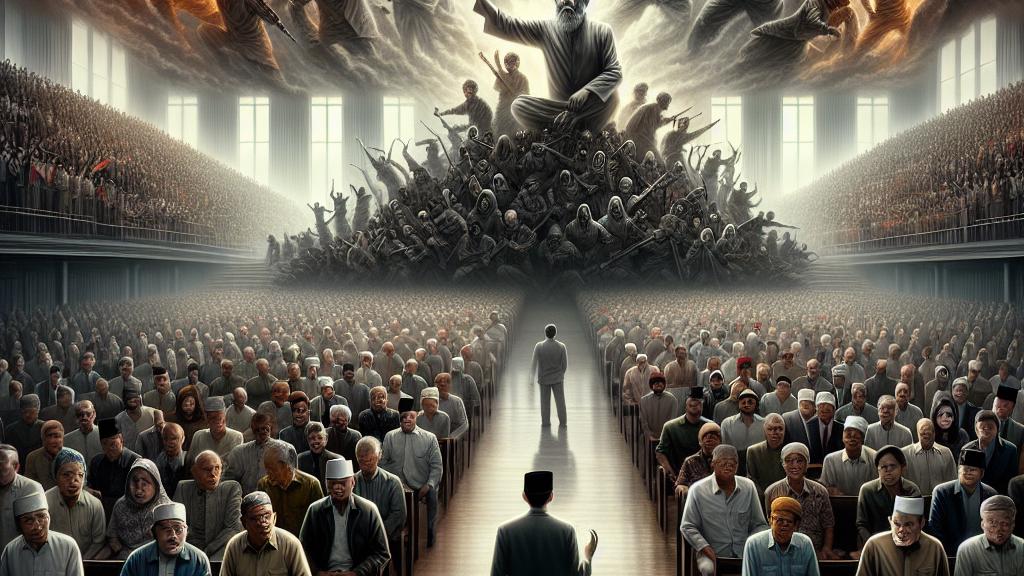From Terror to Tranquility: JI's Journey to Redemption!
Overview
- Former leaders of Jemaah Islamiyah (JI) fervently call on ex-members to relinquish their arms and embrace a peaceful future.
- A nationwide outreach tour aims to prevent the emergence of extremism after JI’s formal dissolution.
- This initiative highlights community-building, reconciliation, and economic contributions throughout Indonesia.

A Shift in Indonesia's Security Landscape
In an astonishing narrative unfolding across Indonesia, the remnants of the infamous terror group Jemaah Islamiyah (JI) are embarking on a remarkable journey toward redemption and peace. In a vibrant gathering in Bekasi, a lively suburb of Jakarta, former leaders convened nearly 400 ex-members, urging them to cast aside the shadows of violence. Abu Rusdan, a notable figure who once commanded respect within JI, asserted with deep conviction, 'Surrendering your weapons is not a sign of defeat; it's a courageous leap toward a brighter future.' His words echoed through the room, enveloping attendees in a mix of nostalgia and hope, a sharp contrast to the haunting memories of the 2002 Bali bombings. Indeed, this pivotal moment signifies not just a departure from a legacy of terror but a bold commitment to community, resilience, and the promise of a more harmonious Indonesia.
Facing the Past and Embracing Change
As the stories unfold, attendees like Yudi Anto and Maman Suherman serve as powerful testaments to the potential for transformation. Yudi, a former member who dedicated ten years to the group, passionately proclaimed, 'We are capable of becoming more than our past.' This heartening sentiment resonates profoundly within the room, encapsulating the essence of their collective resolve to redefine their identities—not as remnants of a violent past, but as pillars of peace. The metaphor of a phoenix rising from the ashes beautifully illustrates their transformative journeys, showcasing that rebirth is both powerful and essential. Supported by the Indonesian government’s initiatives that recognize the importance of this shift for national security, a clear message emerges: personal redemption has the potency to detach the roots of extremism, allowing these individuals to play pivotal roles in fostering community harmony and collaboration.
A Healthier Path Forward
The clarion call for former JI members to transition from a life steeped in violence to one of community engagement harmonizes seamlessly with Indonesia's overarching goals of societal healing and cohesion. The Peace Village model stands as a beacon of hope, exemplifying how grassroots initiatives can be the bedrock of meaningful change. Picture communities thriving, where neighbors collaborate, cultivating safe spaces for future generations to flourish unencumbered by the ghosts of their forebears. This vibrant image not only captures the essence of resilience but also serves as a metaphor for Indonesia's commitment to a brighter, inclusive future. As their journeys unfold, the emphasis on personal accountability, social collaboration, and impactful contributions surfaces as a guiding force, proving that even those with the darkest pasts wield the capacity to inspire hope, steering their nation toward a peaceful coexistence amidst the echoes of their history.

Loading...